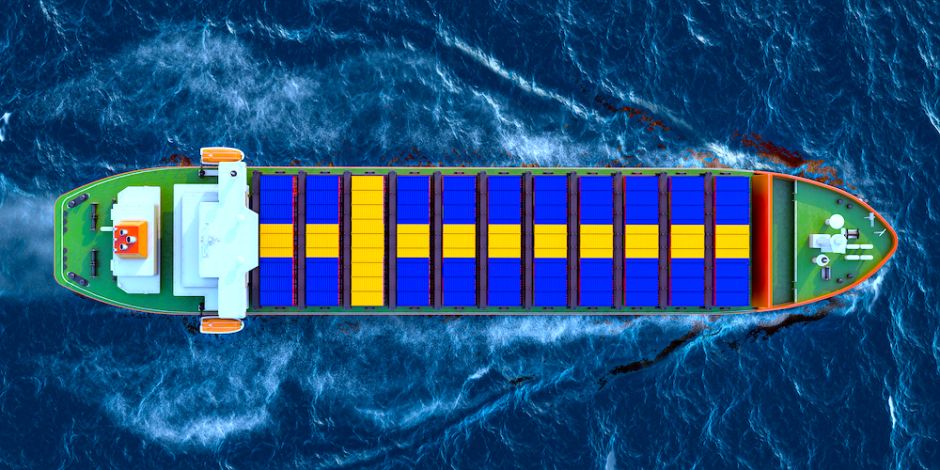The Swedish-flagged fleet must grow

The country's ability to support itself in times of crisis is threatened, the knowledge of shipping decreases and billions of dollars are lost. According to a new pre-study from Lighthouse, these are just some of the negative consequences that the “flagging out” model has had. Now politics must ensure that the Swedish-flagged fleet increases in size.
The war in Ukraine has brought Sweden's defense and supply capacity in times of unrest and crisis back into focus. How well would it work in a real situation ? If you are to believe those who were interviewed in a new pre-study about the benefit of the Swedish flag, the risk is that it would not work very well. Today's 180 Swedish-flagged merchant ships are too few to be able to keep the country with a stable supply in a crisis.
So how many more ships are needed?
- It is difficult to answer precisely, but according to the report, the defense can deploy Swedish-flagged ships when the government has made a decision on heightened alertness. In addition to this possibility, agreements can be used to gain access to ships in various crisis situations when there is no war, says Cecilia Strokirk, project manager at RISE who led the work on the report.
But the message is still that significantly more are needed - the number of Swedish-flagged ships has dropped dramatically in the last 50 years and since Sweden is regarded as an island in the context of transport, the situation is quite serious.
- According to the respondents in the report, politics must get involved. With the application for membership in NATO and a revised handbook regarding ensuring ship capacity, which is out for consultation, there is an increased commitment.
However, the benefit of the Swedish flag is about so much more, for example the supply of skills and knowledge. According to the preliminary study, it is clearly noticeable that the understanding and knowledge of shipping among ordinary people as well as among politicians has decreased as Swedish ships have been flagged.
- It not only affects the shipping industry itself, but also authorities, insurance companies, manufacturing companies and other ancillary services. For example, what should a stove look like on a ship? Just such a simple thing requires special skills, says Cecilia Strokirk.
On an international level, it is also important that Swedish shipping has a strong voice, for example within the UN's maritime organization IMO.
- That voice naturally becomes weaker the more people you lose over time. When people retire or switch to other professions, skills disappear and it is difficult to recruit new ones when, for example, there are not enough internships on Swedish-flagged ships.
The importance of a larger Swedish-flagged fleet for Swedish competitiveness cannot be emphasized enough, says Cecilia Strokirk. According to the pre-study, it is "an important enabler to achieve the government's economic policy goals of strengthening Swedish competitiveness and creating the conditions for more jobs and growing Swedish companies and the economy".
The report The benefit of Swedish-flagged ships and the significance of increased flagging for Sweden is written by Cecilia Strokirk, Henrik Klintenberg, Sara Rogerson, Andreas Bach, Zeeshan Raza, RISE.
-
 NextWave – en podd som ska locka unga
NextWave – en podd som ska locka unga -
 Ny studie: Eldrivna pendelbåtar kan effektivisera Stockholms kollektivtrafik
Ny studie: Eldrivna pendelbåtar kan effektivisera Stockholms kollektivtrafik -
 Sjöfartens utsläpp ökar
Sjöfartens utsläpp ökar -
 Sociala relationer påverkar val av bränsle
Sociala relationer påverkar val av bränsle -
 Sjöfartens omställning kräver ”mjukare” påtryckningar
Sjöfartens omställning kräver ”mjukare” påtryckningar -
 Hon hade avtalad tid med Kapten ynkrygg
Hon hade avtalad tid med Kapten ynkrygg -
 Lighthouse omvärldsanalys 2025 – osäkerhet och tullar präglar sjöfarten
Lighthouse omvärldsanalys 2025 – osäkerhet och tullar präglar sjöfarten -
 Se seminariet Shipping in the Marine Environment
Se seminariet Shipping in the Marine Environment -
 Vad betyder egentligen de 90 procenten?
Vad betyder egentligen de 90 procenten? -
 Hålla där...
Hålla där...

